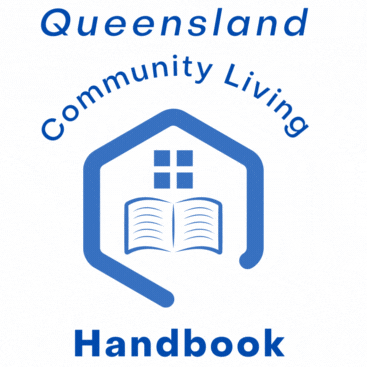
Meetings
“Where Decisions are Made”

- the First Annual General Meeting which the original owner must call and hold
- the Annual General Meeting or AGM is a compulsory meeting which must be held each year
- an Extraordinary General Meetings or EGM’s are all general meetings that are not annual general meetings and they are called to discuss owners’ matters in between the yearly AGM
At every AGM owners consider:
- the financial position of the Body Corporate’s accounts and budgets
- raise funds for future operations from owners contributions
- elect the Body Corporate Committee for the next year
- vote on motion to be considered
In the lead-up, to an AGM the committee must invite owners to nominate for positions on the Body Corporate Committee and submit motions for the meeting. The invitations must be given to all owners at least 3 weeks before the AGM date but not more than 6 weeks before the Body Corporate’s financial year-end.
One may also give the Body Corporate’s Secretary an explanatory note of up to 300 words about a motion.
- a Procedural Motion for the conduct of the meeting
- a motion to amended motion
- a motion to correct the minutes of the meeting
Those present who are entitled to vote may disagree and reverse the ruling.
For example:
- o change the scheme’s regulation module
- to amend a contract with a service contractor or letting agent
- motions with alternatives that are similar motions on the same subject
- the statutory motions which must appear at each AGM are:
- accepting the Body Corporate’s financial accounts
- whether or not to appoint an auditor
- adopting the administrative fund and sinking fund budgets
- fixing the owner’s contributions
- reviewing the insurance policies of the Body Corporate
The Body Corporate Secretary must make available for inspection by voters:
- the Body Corporate’s roll
- a list of persons entitled to vote
- all proxy forms and voting papers
At least 21 days before the meeting, a written meeting notice must be received stating the starting time and place of the meeting.
The advice will contain the following documentation:
· secret voting papers for any motions to be decided by secret ballot
· administrative and sinking fund budgets with quotes for any major spending
· accounts for the body corporate with an audit certificate if necessary
· statement on meeting procedure and voting rights
· papers for committee elections which is always the last item of business for the meeting
If the Body Corporate Chairperson is absence the voters present may elect another person.
The scheme’s Body Corporate manager may chair the meeting only in special circumstances.
Before the meeting can proceed a quorum of at least 25% of persons entitled to vote must be present.
A voter can be present in person, by proxy, by a written vote, or an electronic vote.
Generally, there must also be at least 2 individuals physically present.
Co-owners present is counted as 1 voter for a quorum.
If there is no quorum within the first 30 minutes of the scheduled start time the meeting must be adjourned to the next week for the same place, day and time.
The second meeting a week later does not have to have a quorum for the meeting to proceed.
A mortgagee in possession may claim the right to vote for a lot in place of the registered owner or their appointee.
If the owner owes a Body Corporate debt at the time of a meeting the owner may only vote on a Resolution Without Dissent and may not participate in choosing a member of the committee.
- in person by a show of hands
- by lodging a properly completed written voting paper for the meeting
- by giving a properly completed proxy form to the secretary
The proxy holder can vote:
- in a show of hands
- by completing a written vote or by an electronic vote
- by giving a properly completed electronic vote in the required format and time
provided the Body Corporate has approved its use of this format
- is irrevocable
- cannot be transferred by the holder to a third party
- lapses with time
- must be given to a named individual and not just the “chairperson”
If at least one co-owner of a lot is present at a meeting a proxy given by another co-owner is of no effect.
There are also occasions when a proxy vote must not be used at a general meeting like voting on Majority Resolution.
However, if there is conflict in the votes cast by co-owners no vote may be counted for that lot on the motion being considered.
Copies of the minutes must be given to owners within 21 days of the meeting.
The type of resolution reflects the importance of the matter being decided.
When voting only one vote may be exercised for each lot.
If a secret ballot is required to decide the motion a Returning Officer must oversee the voting.
Ordinary Resolution
(no poll requested)
To Pass the Resolution
The votes counted for the motion must exceed the votes counted against the motion
- To adopt the administrative fund and sinking fund budgets for each financial year of the Body Corporate.
- To fix the discount allowed for the timely payment of contributions
Ordinary Resolution by Poll – the motion is decided by the value of the votes
The total of the contribution schedule lot entitlements for the votes counted for the motion must exceed the total against the motion
To resolve not to appoint an auditor to audit the accounts for the next financial year of the Body Corporate.
Ordinary Resolution
(no poll requested)
The votes counted for the motion must exceed the votes counted against the motion
- To adopt the administrative fund and sinking fund budgets for each financial year of the Body Corporate.
- To fix the discount allowed for the timely payment of contributions
Special Resolution
A “Trifecta” must occur.
- At least two-thirds of the votes must be in favor of the motion; and
- The number of votes against the motion must not exceed 25% of the lots in the scheme; and
- The total of the contribution schedule lot entitlements for the votes against the motion must not exceed 25% of the total for all the lots
Resolution without Dissent
No vote must be against the motion
To approve a process to reinstate the building in whole or in part
The Body Corporate must Keep for 2 years
- associated general meeting material
- such as committee nomination notices
- motions submitted and any explanatory notes
- proxy forms
- voting tally sheets
The Body Corporate must keep for 6 years
- meeting notices and agendas
- written voting papers
- ballot-papers
- secret voting documentation
- budgets
- statements of accounts
- auditor’s certificates
- tender documents
Queensland Community Living Handbook

Steve Reynolds e: qldclh@gmail.com PO Box 394 Surfers Paradise.4217